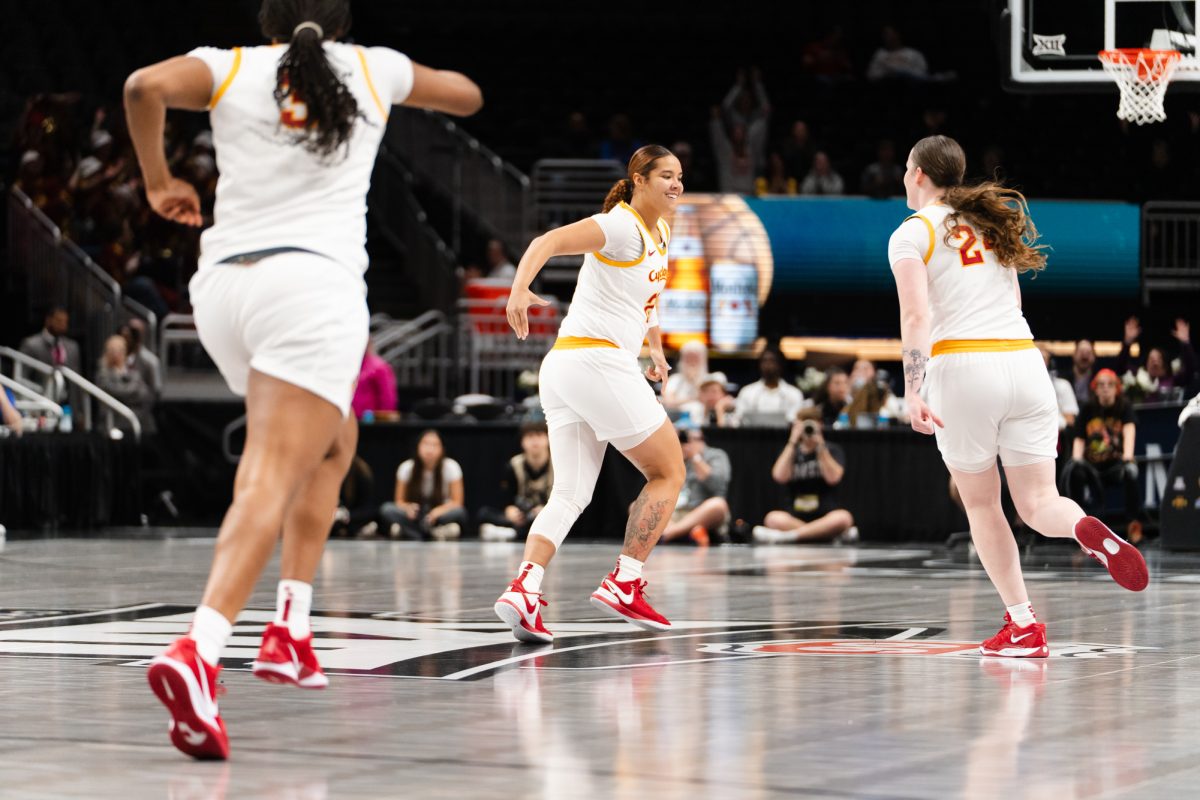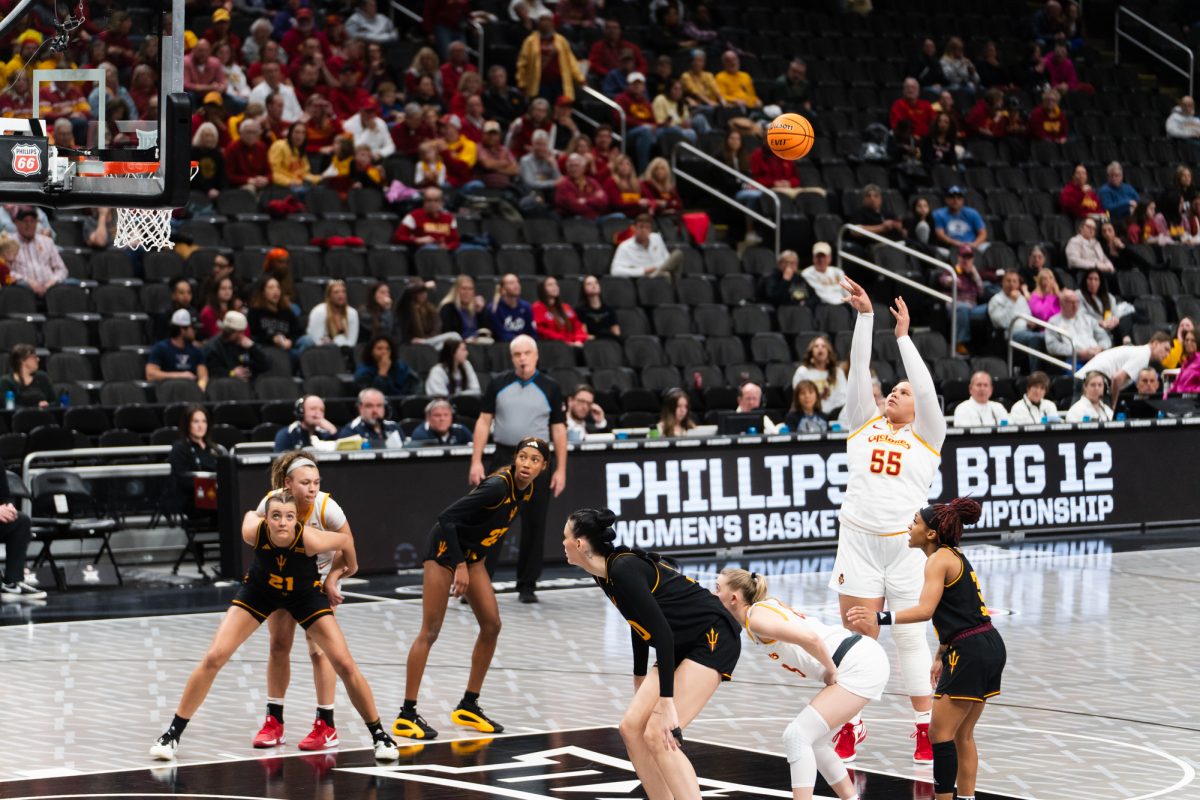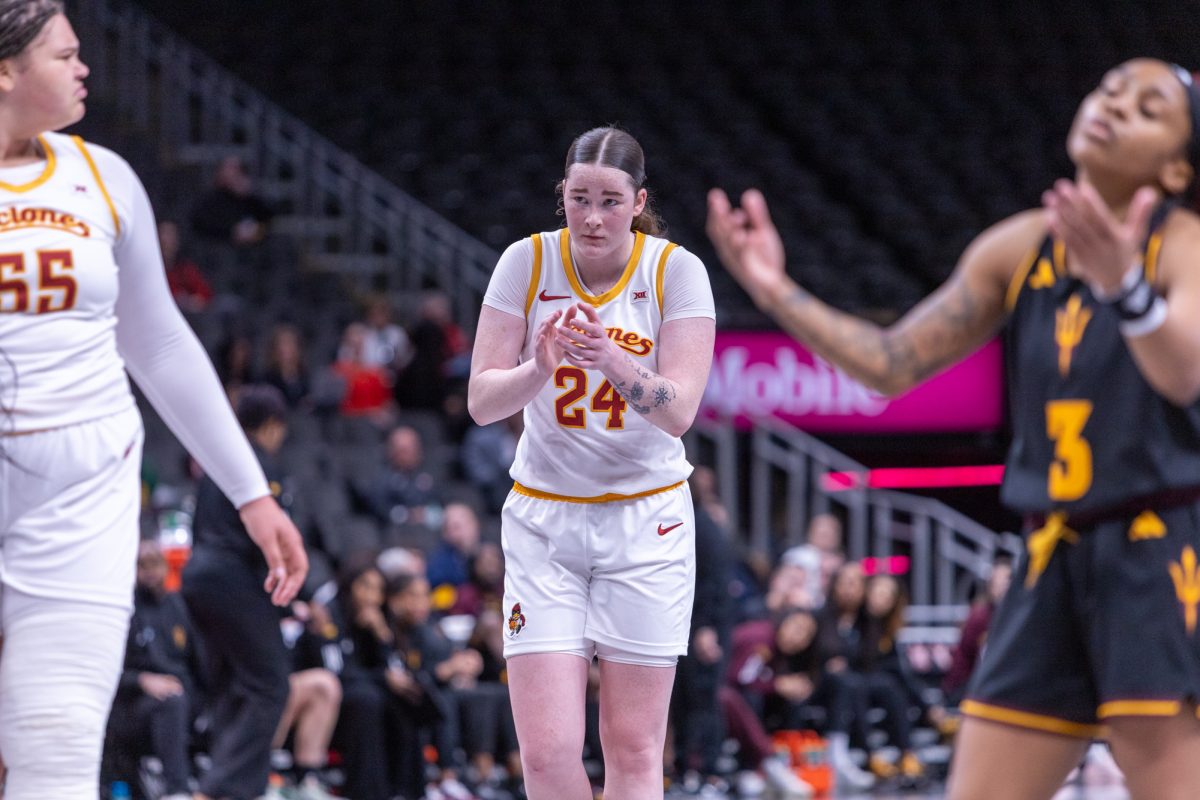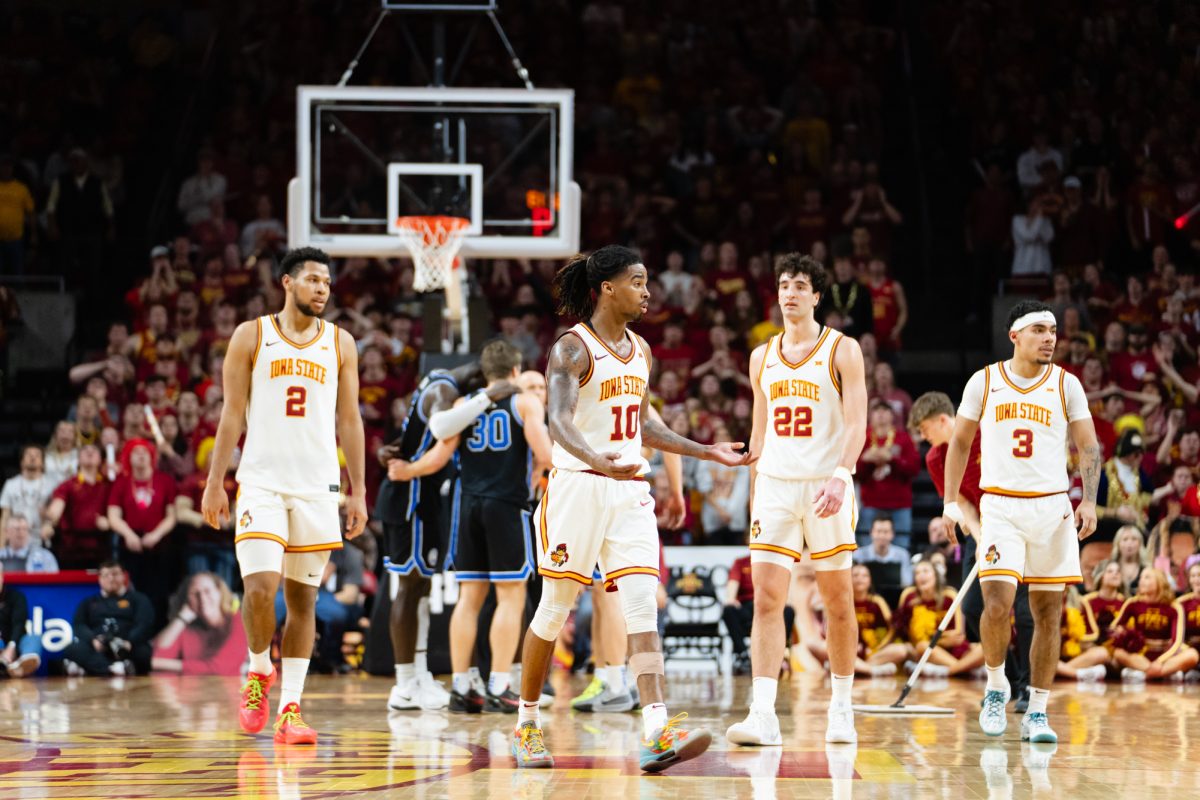Ames Lab worker brings bagpipes to campus
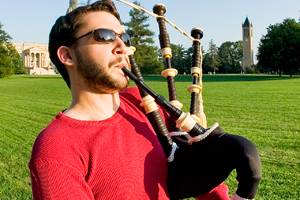
Albert De Fusco, researcher at Ames Lab, plays traditional scottish music on a bagpipe on Friday, Sept. 26, 2008 on Central Campus. Fusco said he plays on Central Campus most weekdays from 5 to 6. Photo: Manfred Strait/Iowa State Daily
October 4, 2008
His love for the bagpipes began 13 years ago after first seeing them played at a music festival.
“As soon as DeFusco saw the bagpipes there, his eyes were glued to them,” said Claire DeFusco, mother of Albert DeFusco.
DeFusco, postdoctoral research assistant for the Ames Laboratory, is the person often heard on campus playing the bagpipes.
His interest in the bagpipes began when his sister started playing the harp and went to play at a Scottish festival.
The next year he was playing in that festival. He has also done parades with a band in Pittsburgh, Penn., on St. Patrick’s Day. One of his best experiences was marching with fireman and playing his bagpipes for the fallen fireman.
No one in the DeFusco family has played the bagpipes before.
DeFusco practiced wherever he could. When he wasn’t practicing at school, he practiced in the garage or in the yard at home.
“Thankfully our neighbors loved it,” Claire said. The DeFusco’s neighbors still come out and sit on their lawns to listen when returns he home.
“On Halloween, Albert would walk around our neighborhood and play,” Claire said. “He didn’t want candy, he just wanted to play for everyone.”
The first lessons DeFusco took were from Rev. Lee McDaniel. A few years before DeFusco started playing McDaniel had gotten a brand new bagpipe, so he had an old pair he didn’t use.
“Bagpipes can be very expensive, so I literally begged the reverend to sell me his old set,” Claire said. The reverend told her they were too old and wouldn’t sound well. But he eventually sold them to her for $250.
That pair of bagpipes is still used by DeFusco today. The family fixed them up, and DeFusco has taken them around the world.
“Many people have told him that they are the most beautiful pipes around,” Claire said.
DeFusco is very proud of them. When McDaniel passed away, his wife told Claire that DeFusco was McDaniel’s favorite student, and he was going to be the best of the best someday.
DeFusco started becoming a serious bagpiper when he went to University of Pittsburgh and joined the Carnegie Mellon University’s Pipes and Drums band.
“It was a great learning experience,” DeFusco said.
The Carnegie Mellon band won the top prize in last spring’s Southern Maryland Scottish Games.
“The man he took lessons with for this band is one of the best pipers in the world,” Claire said. DeFusco played his bagpipes around Pittsburgh’s campus as well.
DeFusco has competed in many competitions with the Carnegie Mellon Band and “did quite well.” His favorite thing to do is solo competitions, DeFusco is a grade one piper, which is the highest amateur level.
“I’ve done pretty well and received many awards in solo competition as well,” DeFusco said.
Between April and August is when Defusco usually competes, often participating in about eight competitions.
“There are not as many competitions in this part of the country,” DeFusco said. He usually goes to Pittsburgh and Maryland to compete.
“I was worried about how he was going to cope in Iowa because he usually joins a band as soon as he gets to a new place,” Claire said.
DeFusco has been to Scotland once for a world pipe band competition with the MacDonald Pipe Band from Pittsburgh. Although they didn’t place in the competition DeFusco said he “had a great time anyway.”
Playing the bagpipes can get expensive. DeFusco’s outfit is authentic — imported directly from Scotland. His outfit consists of his MacDonald tartan kilt, which he got from McDaniel, and Glengarry headwear.
Mystery of the bagpipe player — solved:
Many have heard Albert DeFusco, postdoctoral research assistant for the Ames Laboratory, playing, but can not find him.
This is because DeFusco’s favorite playing spot on campus is in front of Beardshear Hall in between all the trees.
“I heard the music, so I went over to see where it was coming from,” said Ruth Lin, director of orchestral activities. “After I found him, I sat down and listened for a while. I think it’s lovely.”
DeFusco tries to practice about an hour each day. Most bagpipers enjoy practicing outdoors rather than indoors because the bagpipe can be very loud. DeFusco tries to get out and play whenever he gets the opportunity.
“I’m probably going to start playing inside more with the cold weather coming,” DeFusco said.
Students walk up to DeFusco all the time when he is playing.
“They come up, watch me play and say hi. It’s great,” DeFusco said.
DeFusco plans on playing for a long time — he doesn’t have a certain stopping point as of right now. If or when DeFusco has kids he hopes they will become interested in bagpiping as well.
“I wouldn’t force it on them, but it would be nice,” DeFusco said.


